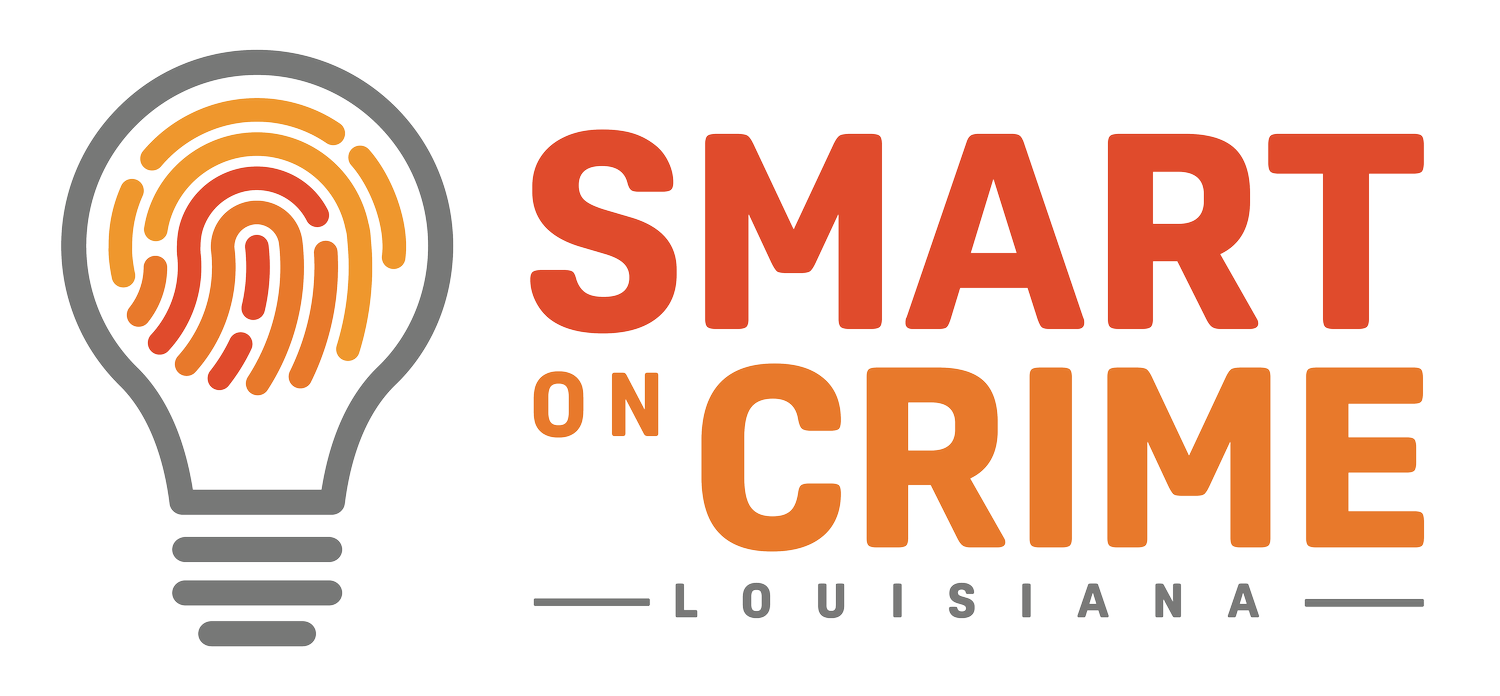Courthouse of Cards: The Instability of Fines and Fees
Fines and fees are the penalties and legal obligations that accompany involvement with the criminal justice system. Fines are issued as punishment and are attached to infractions like traffic violations. Fees are not punitive, but instead serve an administrative purpose, like court costs. The revenue from fines and fees is often used to fund the judiciary, creating an unstable and unsustainable justice system.
Smart on Crime and the Pelican Institute’s report, “The Future of Justice,” highlights the idiosyncrasies of Louisiana’s fines and fees system. Louisiana has nearly 600 distinct fines, fees, and court costs. Some are quite niche, and apply to uncommon scenarios like bear wrestling. They range greatly in cost and reach up to $1,000,000. These legal financial obligations “almost always go to judicial expense funds, which cover salaries, office equipment, and other operational costs—often at the discretion of judges overseeing the funds. Unlike many states, Louisiana does not prevent judges from financially benefiting from these assessments, creating at least an appearance of a conflict of interest.”
Despite this appearance, Louisiana’s district courts continue to rely on fines and fees as a primary source of funding. An investigation conducted by the Louisiana Illuminator revealed that a quarter of the state's judicial expense funds in 2021 and 2022 were supported primarily by fines and fees charged to criminal defendants, and that the vast majority of courts collected at least $30,000. Louisiana’s judicial system relies on fines and fees, but at what cost?
New data indicates that fines and fees make it more difficult to achieve individual rehabilitation, and are unsustainable ways to support a judicial system. The Tax Policy Center reports that an expanded reliance on fines and fees “could increase fiscal hardship among residents without meaningfully improving state and local budgets.” The Tax Policy Center found that, while fines and fees are quite common, they often go unpaid. Many of those who owe fines and fees and have been involved in the criminal justice system experience lower income and material hardship. For example, the study reports that 61% of individuals with court or incarceration related costs experience food insecurity. However, fines and fees are not always calculated upon an individual's ability to pay, and as a result, remain unpaid.
A secondary consequence of the disparity between legal financial obligations and an individual’s ability to pay is the redirection of public benefit programs. The same study notes that participation in public benefit programs was high in those families impacted by fines and fees, creating an unproductive cycle. “These results show that state and local governments may be imposing fine or fee burdens on those who are receiving public support through other means, thereby taking away and giving resources to the same households.” If the purpose of fines and fees is to deter illegal/criminal activity while supporting a state’s judicial system, the data show that the system is failing on both fronts. Instead, people in the justice system accrue more debt while courts flounder to balance their budgets.
Louisiana’s criminal justice system is at a critical juncture. Reports of flawed sentencing procedures, unsolved murders, prison overcrowding, and inefficiency have drawn attention to the courts of Louisiana. At the same time, public safety continues to be a priority for Louisiana residents, and great strides have been made by communities over the last year through smart policing and concentrated efforts to reduce crime. The present fines and fees structure adds bureaucratic clog to a court system that cannot afford it, and creates fiscal dependence on a highly unreliable source of funding.
However, accessible and actionable options are available and outlined in The Future of Justice. The Legislature can repeal rarely used fines and fees, to reduce the nearly 600 legal financial obligations currently on the books. Aligning fee structures with due process standards and expanding ability to pay determinations to include misdemeanors and infractions would also help to create a fairer system. Other smart policies include capping fine and fee amounts so they don’t grow and become increasingly impossible to pay and reducing collateral consequences and additional penalties. Longer term, the state legislature should work with courts and other stakeholders to transition to a more responsible funding mechanism.
Louisiana’s Commission on Justice System Funding, in its present form or reconstituted if necessary, should continue its work on these issues to inform legislative action. The task force was highly active until 2022, when it became dormant. During its active time, the commission made a series of recommendations but never fully concluded its work. Relaunching the task force is an opportunity to gather data, explore solutions, and advance evidence-backed strategies to transition away from a judiciary reliant on fines and fees that make rehabilitation impossible and are bad for taxpayers. A just and fiscally responsible system is stronger than the ebb and flow of fines and fees.
